Erich Wolfgang Korngold (1897 – 1957)
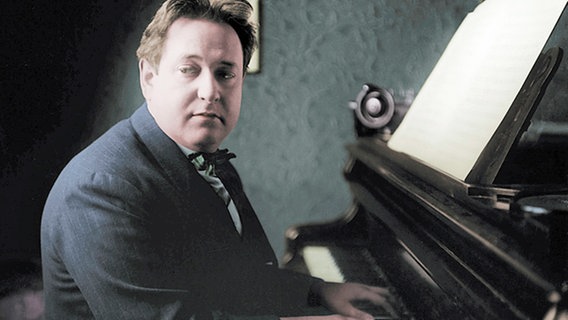
Erich Wolfgang Korngold was an early pioneer in the use of orchestral scores for film. 1934 marked his Hollywood debut with an arrangement of Mendelsohn’s incidental music for Reinhardt’s A Midsummer Night’s Dream. During his second stay in America, the Austro-Hungarian born musician composed film scores for both Warner Bros. and Paramount, which led to an exclusive contract with Warner Bros. His Oscar-winning scores included Anthony Adverse (1936) and The Adventures of Robin Hood (1938), with the latter ranked as number 11 on the American Film Institutes (AFI) list of greatest film scores.
Dmitri Shostakovich (1906 – 1975)
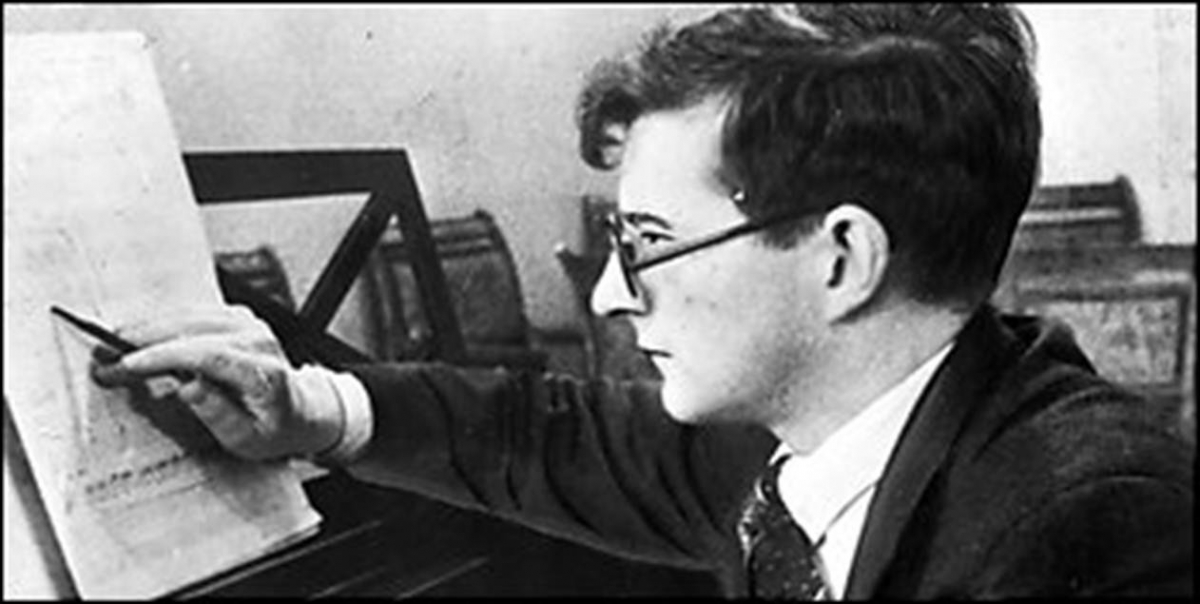
Celebrated for his symphonies, string quartets and operas, Dmitri Shostakovich was also a composer for screen. Adapting to the politically volatile conditions in Russia after the Bolshevik Revolution, Shostakovich forged a prolific career under the Stalinist communist dictatorship. He created a plethora of scores used in films numbering over 100. His most notable works include; The Maxim Trilogy (1935-1939), Pirogov (1947), The Gadfly (1955), and Hamlet (1964), although his music for film is rarely performed today.
Bernard Herrmann (1911 – 1975)
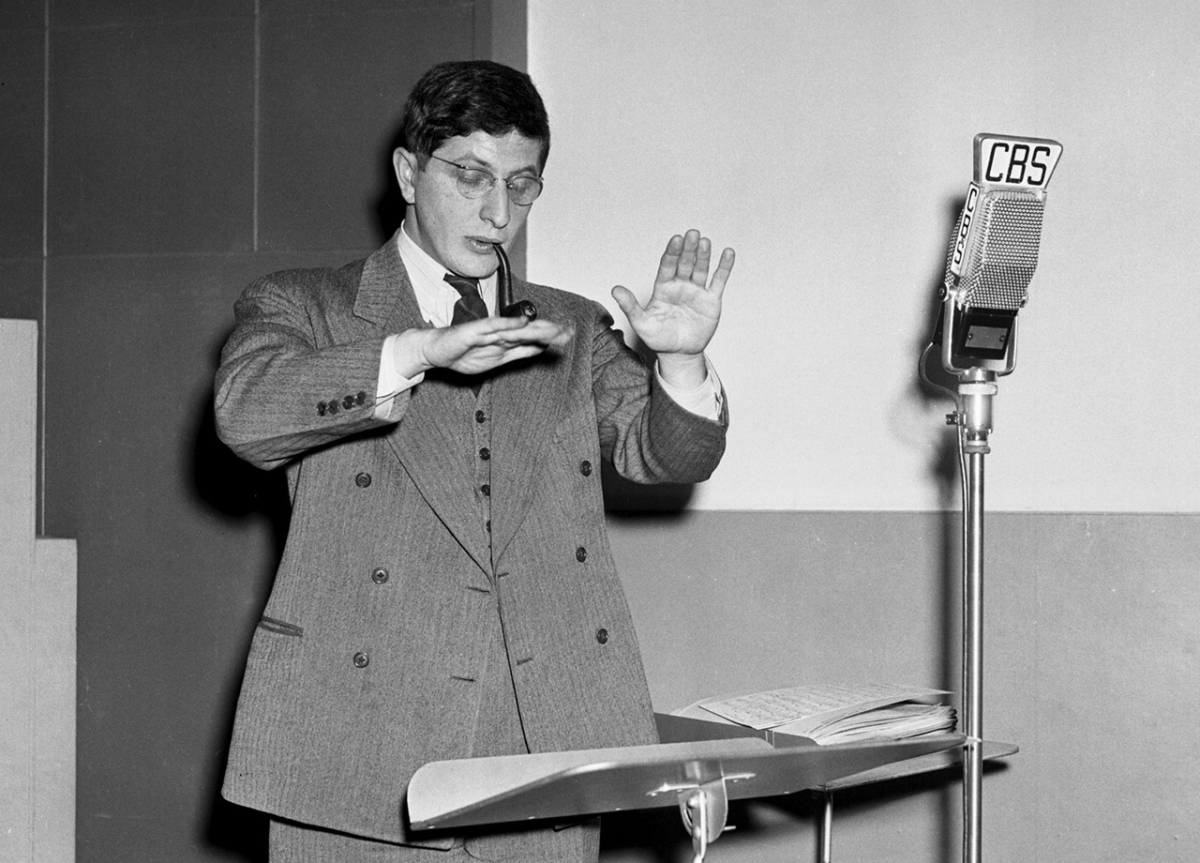
Bernard Herrmann is synonymous with the films of the iconic director Alfred Hitchcock, composing scores for such works as; The Man Who Knew Too Much (1956), Vertigo (1958), and North by Northwest (1959). By far his most iconic music, one of the most recognisable music cues in the entire canon of film music, is the blood-curdling string score found during the shower murder scene in Hitchcock’s 1960’s film Psycho. Winning an Academy Award for The Devil and Daniel Webster (1941), Herrmann also composed extensively for other films, radio dramas (composing for Orson Welles for the infamous War of the Worlds broadcast), and television programs. He collaborated with Welles to write music for Citizen Kane (1941), which was deemed by Hollywood standards as unconventional as Welles’ storytelling.
Ennio Morricone (1928 – 2020)
![]()
With a career that spans some 50 years, Ennio Morricone is a giant of film composition. He has composed soundtracks for a colossal 500 plus films and television productions, spanning across four different languages. Morricone established himself as a composer for film through his works for Westerns like The Good the Bad and the Ugly (1966), and Once Upon a Time in the West (1968). Although westerns put Morricone on the map he has also composed scores for mystery thrillers, comedies, epics, and romantic dramas. The seasoned composer has worked with some of cinemas most iconic directors, including Franco Zefirelli, Federico Fellini, Roman Polanski, Roland Joffe, and Giuseppe Tornatore. His work gaining worldwide recognition winning two Grammy’s, induction into the Grammy Hall of Fame, the Grammy Trustee Award, two Golden Globes, Five BAFTA awards, an Italian Golden Globe, the 1989 best foreign film Oscar for Cinema Paradiso, and is one of just two composers to receive the Honorary Oscar since the award’s introduction in 1928.
John Williams (1932- now)
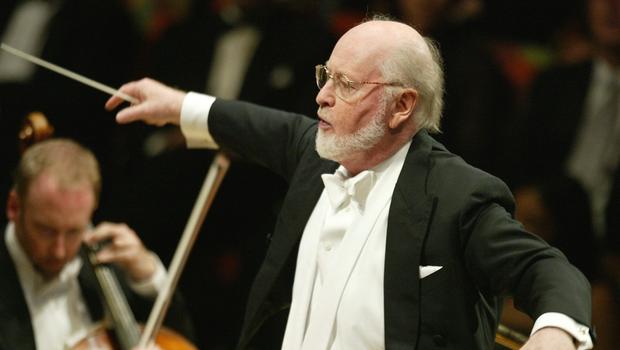
With a career spanning over six decades, and with no evidence of slowing down, John Williams is unquestionably one of the most influential, popular, and successful composers of his generation. Williams has composed and conducted more than 100 scores for film and has served as musical director for nearly eighty films. His remarkable ability to create some of pop-cultures most celebrated and instantly recognisable themes – such as Jaws, Star Wars, Jurassic Park, Indiana Jones, Superman, E.T, and Schindler’s List – makes him musical royalty of the silver screen. His success is evident by the slew of nominations and award wins including five Academy Awards, seven BAFTA awards, three Emmy’s, four Golden Globes, four Oscar wins, and an outstanding 22 Grammys. With over 49 nods, Williams’ holds the record for most Oscar nominations for a living person and is the second most nominated person in Academy Awards history. 2005 saw Star Wars be named as the greatest American film score of all time by the American Film Institute (AFI).
John Barry (1933 – 2011)
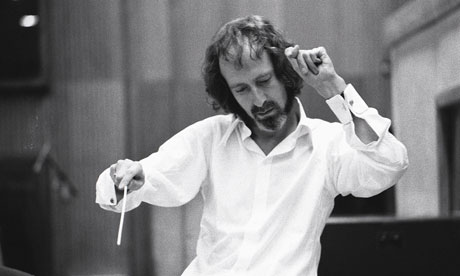
John Barry gained international fame in 1962 after composing the title song for the first film of the Bond franchise. The unique musical blend of jazz and pop perfectly encapsulated the 007 character and is deeply engrained in pop-culture as the theme for a secret service sleuth, synonymous with Bond’s unique brand of mystery, danger, and charisma. The English composer and conductor composed the soundtracks for 11 of the Bond films. His award successes include five Oscar Awards, Five Academy Awards, and a Golden Globe. His award-winning repertoire included the scores for such films as Midnight Cowboy (1969), Dances with Wolves (1990), and Out of Africa (1985). In 1999 Barry was appointed an Officer of the Order of the British Empire (OBE) for his services to music and in 2005 he received the BAFTA Academy Fellowship award. In the same year Barry’s score for Out of Africa was ranked no.15 on the AFI’s list of greatest film scores.
James Horner (1953 – 2015)
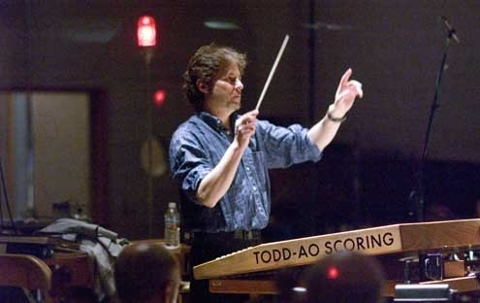
The late James Horner who was tragically killed in a shocking plane crash last month, created some of the most well loved film scores of the modern era. Horner began his career in film scoring in the late 70’s scoring student films for the AFI. This led to Horner composing scores for a number of small-scale films. His breakthrough happened in 1982 with his first large composition project for the film Star Trek II: The Wrath of Khan. The high-profile project subsequently led to a number of other film offers and opportunities. Working with George Lucas, Steven Spielberg, James Cameron, Oliver Stone, and Ron Howard, Horner firmly established himself as one of Hollywood’s most in-demand composers. Scoring over 75 projects during his sadly cut-short career, Horner composed the music for some of modern cinemas most successful films, including Titanic (1997), The Land Before Time (1988), Braveheart (1995), The Mask of Zorro (1998), Troy (2004), The Legend of Zorro (2005), and Avatar (2009). Horner was recognised with a total of 16 awards, eight of which for best original score and best original song from the blockbuster hit Titanic.
Danny Elfman (1953 – now)
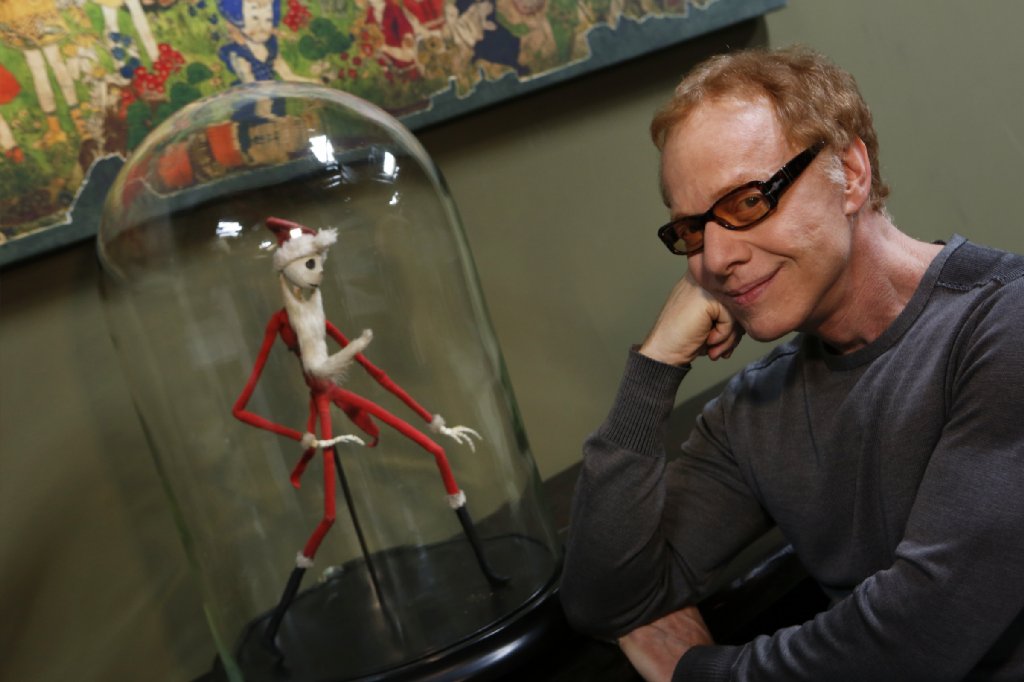
The singer and songwriter of the band Oingo Boingo gained recognition for compositional talent after collaborating with his brother, director Richard Elfman, on the film Forbidden Zone (1980). Five years later Elfman met the young director Tim Burton and their many collaborations have been defined by Elfman’s instantly recognisable aesthetic. Burton provided the American composer with his first opportunity to compose for a big-budget film, Pee-Wee’s Big Adventure (1985). Few other director-composer collaborations have been as committed as Burton’s and Elfman’s, with the composer scoring ever film Burton has directed, with the exception of one. The composer has also worked closely with a number of other directors resulting in a number of other film and televions classics, such as The Simpsons main title theme (1989), Good Will Hunting (1997), A Simple Plan (1998), Mission: Impossible (1996), Chicago (2002), and Charlotte’s Web (2006). Elfman has won 33 awards, including winning all 24 nominations at the BMI Film and Television Awards.
Thomas Newman (1955 – now)
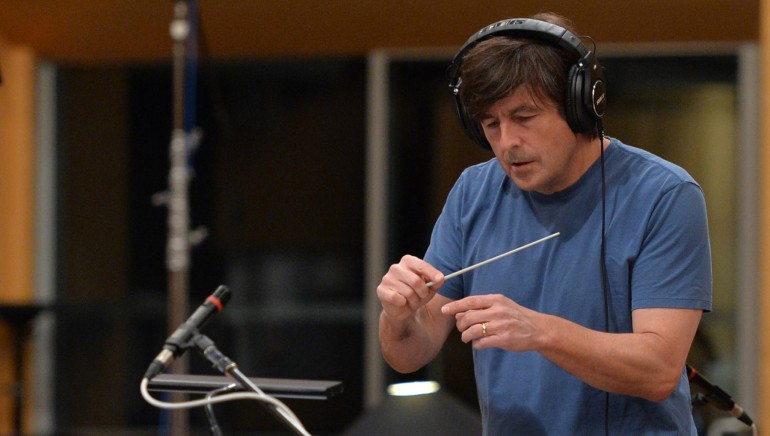
Thomas Newman continues a musical family legacy built by his Alfred Newman and his uncle Lionel Newman. After impressing Stephen Sondheim with his originality, the Broadway legend backed Newman for the musical theatre piece, Three Mean Fairy Tales. However it was in 1983 that Newman broke into the film industry after orchestrating a John Williams cue from Return of the Jedi. His score for Desperately Seeking Susan (1985) cemented his career and enabled him to explore his distinctive electro-orchestral arrangements. Two Academy Award nominations in 1994 for Little Women and the Shawshank Redemption marked his first major successes. With eight Oscar nominations for The Scent of a Woman (1992), American Beauty (1999), The Green Mile (1999), Finding Nemo (2003), Revolutionary Road (2008), and Skyfall (2012), Newman’s distinctive sound has become often repurposed for television and advertising purposes in recent years.
Hans Zimmer (1957 – now)
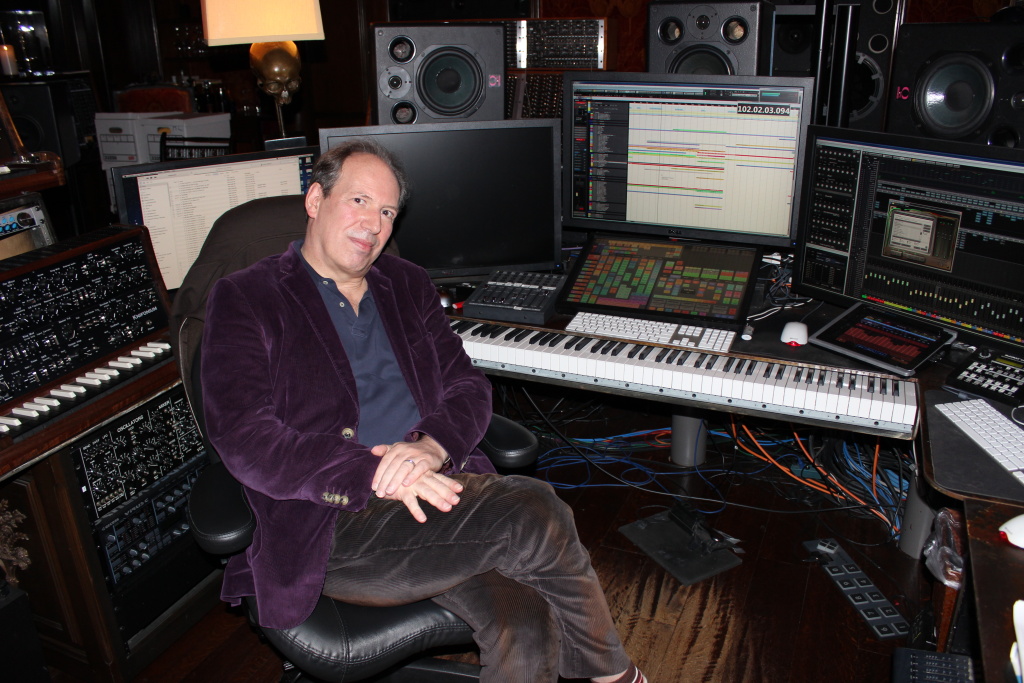
One of the most prolific film composers of the late 20th and early 21st centuries, the German-born composer Hans Zimmer is recognised as one of Hollywood’s most compelling and in demand talents. Starting as a synth programmer and recording engineer, Zimmer learnt all things electro, combining old technologies with the modern age of computer and synthesiser music. His stellar career grew from a collaboration with composer and mentor Stanley Myers on the filmy Beautiful Laundrette (1985). By 1990, Zimmer had already scored two Best Picture Academy Award winners (Rain Man and Driving Miss Daisy), however, it was his Oscar winning score for The Lion King (1994) that cemented his reputation, making him a prominent figure in the world of cinematic music. The 2000’s saw Zimmer’s career flourish as he continued to score blockbusters such as Gladiator (2000), Hannibal (2001), The Last Samurai (2003), and the Da Vinci Code (2006) and The Pirates of the Caribbean trilogy (2003-2011). However his recent collaborations with visionary director Christopher Nolan has yielded some of his most compelling work, including scores for The Dark Knight Trilogy (2005-2012), Inception (2010), and Interstellar (2015). With numerous awards to his name, which includes two Golden Globes, and three Grammys, Zimmer continues to be one of modern cinemas most influential and prolific composers.











Comments
Log in to join the conversation.